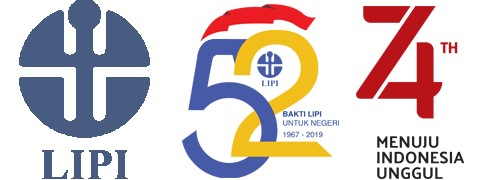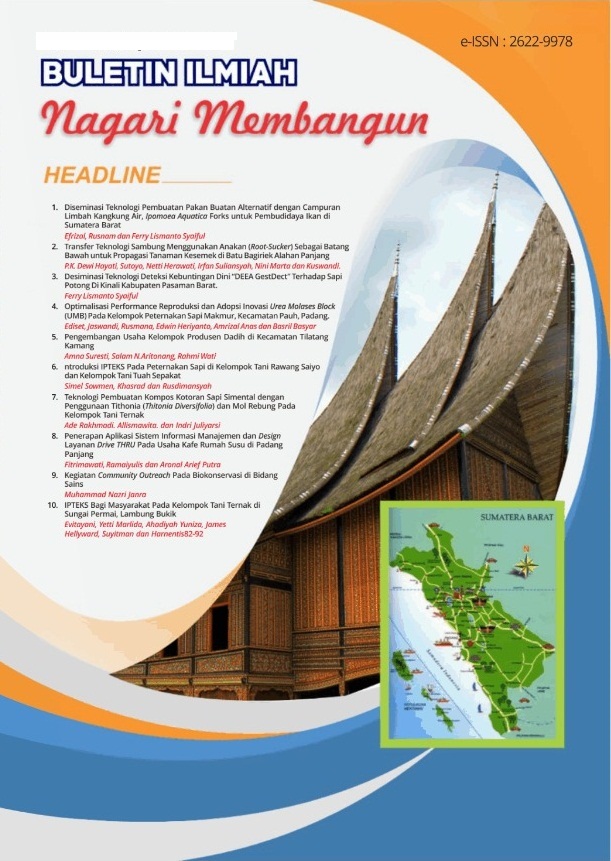Indonesia UPAYA PENINGKATAN WELL-BEING PADA MASYARAKAT BERESIKO MELALUI STRATEGI PEMBENTUKAN STRENGTH-BASED COMMUNITY RESPONSE DI NAGARI KAMPUNG BARU, KABUPATEN PESISIR SELATAN
Abstract
The implementation of the Strength-Based Community Response program was primarily aimed at investigating the effectiveness of this approach in enhancing psychological functioning and well-being within a high-risk environment located in Nagari Kampung Baru, Pesisir Selatan Regency. This high-risk environment encompasses communities facing a multitude of complex challenges in the social, economic, and psychological realms. The intervention was carried out through a structured series of stages, commencing with the establishment of rapport with the respective community, followed by core activities, and concluding with program evaluation to measure its success and necessary follow-up actions. The entire population of Nagari Kampung Baru, Pesisir Selatan Regency, participated in this program with the broader goal of establishing a healthy and prosperous model village. The results derived from this program unequivocally demonstrate the effectiveness of the Strength-Based Community Response approach in improving individual psychological functioning while simultaneously stimulating the development of underutilized community resources. Participants engaged in these activities experienced a significant increase in their subjective well-being levels. Furthermore, they reported substantial improvements in self-awareness, social relationships, and their perception of their ability to control their personal lives. In conclusion, the practical implications arising from this research effort include two main points: first, it reaffirms the potential application of similar approaches as effective intervention models to enhance the quality of life and well-being of individuals within their respective environments. Second, this approach underscores the importance of community engagement and empowerment in the pursuit of holistic well-being.
Downloads
References
Augia, T., Ramadani, M., Markolinda, Y., Firsti, R., & Hanifah, S. 2022. Edukasi pencegahan dan penyalahgunaan napza di Posyandu Remaja Anggun Nan Tongga Kelurahan Kampung Jawa I Kota Pariaman. Buletin Ilmiah Nagari Membangun, 5(2): 193-200.
Carballo, J.J., et al. 2020. Psychosocial risk factors for suicidality in children and adolescents. European Child & Adolescent Psychiatry, 29: 759 – 776.
Chown, D. 2021. A Strength-Based Approach to Religion and Spirituality for Muslim Learners in Health and Physical Education. In Curriculum Renewal for Islamic Education (pp. 125-152). Routledge.
Cormier, S., Nurius, P. S., & Osborn, C. J. 2018. Interviewing and change strategies for helpers: Fundamental skills and cognitive-behavioral interventions (8th ed.). Cengage Learning.
Deci, E. L., & Ryan, R. M. 2018. Hedonia, eudaimonia, and well-being: An introduction. Journal of Happiness Studies, 9(1): 1-11.
Diener, E., Oishi, S., & Tay, L. 2018. Advances in subjective well-being research. Nature Human Behaviour, 2(4): 253-260.
Dubey, S., et al. 2020. Psychosocial impact of Covid-19. Diabetes & Metabolic Syndrome: Clinical Research & Review, 14: 779-788.
Fredrickson, B. L. 2018. The broaden-and-build theory of positive emotions. Philosophical Transactions of the Royal Society B: Biological Sciences, 359(1449): 1367-1377.
Green, L. W., & Kreuter, M. W. 2019. Health promotion planning: An educational and ecological approach. McGraw-Hill Education.
Hartini N, Fardana NA, Ariana AD, Wardana ND. 2018. Stigma toward people with mental health problems in Indonesia. Psychol Res Behav Manag, 11: 535-541.
Karlsson, O., Jan-Walter, DN., & SV, S. 2019. Weakening association of parental education: analysis of child health outcomes in 43 low-and middle-income countries. International Journal of Epidemiology, 27: 85-97.
Kashdan, T. B., & Ciarrochi, J. 2018. Mindfulness, Acceptance, and Positive Psychology: The Seven Foundations of Well-Being. New Harbinger Publications.
Kretzmann, J. P., & McKnight, J. L. 2019. Building communities from the inside out: A path toward finding and mobilizing a community's assets. ACTA Publications.
Malini, H., Putri, D., & Rahmi, L. H. 2019. Pelatihan senam yoga bagi pasien diabetes mellitus di Puskesmas Lubuk Buaya. Jurnal Hilirisasi IPTEKS, 2(3): 217-235.
Masrizal, M., Khamelia, L., & Arbimes, A. 2019. Edukasi kesehatan reproduksi sebagai upaya promosi kesehatan di SMPN 5 Kota Padang. Buletin Ilmiah Nagari Membangun, 2(1): 39-44.
Maton, K. I. 2018. Empowering community settings: Agents of individual development, community betterment, and positive social change. American Psychological Association.
Mulyana, E. 2019. Upaya pemberdayaan ekonomi, sosial dan budaya pada masyarakat melalui pengembangan bisnis ekowisata. Business Innovation and Entrepreneurship Journal, 1(1): 38-43.
Novrianda, D., Fajria, L., & Hermalinda, H. 2019. peningkatan keterampilan konseling pendampingan menyusui melalui pelatihan. Jurnal Hilirisasi IPTEKS, 2(2): 113-121.
Pomeroy, E. C., & Meier, S. T. 2019. Strengths-based generalist practice: A collaborative approach. Pearson.
Putri, P. M., Kardo, R., & Mulyani, R. R. 2023. Hubungan self-management dengan sikap bullying peserta didik di Kelas XI BDP SMK Negeri 1 Painan Kabupaten Pesisir Selatan. Journal on Education, 5(4): 14493-14500.
Putri, D. S., & Yanzi, H. 2020. Analisis kepekaan sosial generasi (z) di era digital dalam menyikapi masalah sosial. Bhineka Tunggal Ika, 7(1): 17-23.
Rada Srimutia, R. S. 2021. Hubungan Aspek Fisik Dan Psikososial Dengan Status Fungsional Pada Lansia Di Wilayah Kerja Puskesmas Air Haji Kabupaten Pesisir Selatan (Doctoral Dissertation, Universitas Perintis Indonesia).
Rahmawati, E. Y., & Puspitasari, F. A. 2023. Edukasi dan pelatihan bantuan hidup dasar dalam meningkatkan kemampuan penanganan kondisi gawat darurat bagi PJLP Suku Dinas Kesehatan Kota Jakarta Timur. Jurnal Kreativitas Pengabdian Kepada Masyarakat (PKM), 6(8): 3352-3364.
Rapp, C. A., & Goscha, R. J. 2018. The strengths model: A recovery-oriented approach to mental health services. Oxford University Press.
Rappaport, J. 2019. Empowerment meets narrative: Listening to stories and creating settings. American Journal of Community Psychology, 24(5): 685-704.
Saleebey, D. 2019. The strengths perspective in social work practice. Pearson.
Seligman, M. E., & Csikszentmihalyi, M. 2018. Positive psychology: An introduction. American Psychologist, 55(1): 5-14.
Shulman, L. 2019. The skills of helping individuals, families, groups, and communities (8th ed.). Cengage Learning.
Sudirman, L., & Disemadi, H. S. 2021. Kebijakan corporate social responsibility: investasi sosial dalam pengembangan masyarakat selama pandemi covid-19. Jurnal Pembangunan Hukum Indonesia, 3(3): 281-298.
Sulastri, E., Haryadi, T., & Inayah, E. 2019. Tingkat kesadaran ekologis masyarakat Kampung Laut, Kabupaten Cilacap, Jawa Tengah. Jurnal Kawistara, 9(1): 78-90.
Timalsina, M., Mana, K., & Rekha, T. 2018. Psychosocial problems among school going adolescents in Nepal. Psychiatry Journal, 28: 1-6.
Walker, D. K. 2021. Community-Level, Strengths-Based Approaches to Improving Population Mental Health. In APHA 2021 Annual Meeting and Expo. APHA.
Weil, M., & Reisch, M. 2018. The handbook of community practice (3rd ed.). Sage Publications.





















